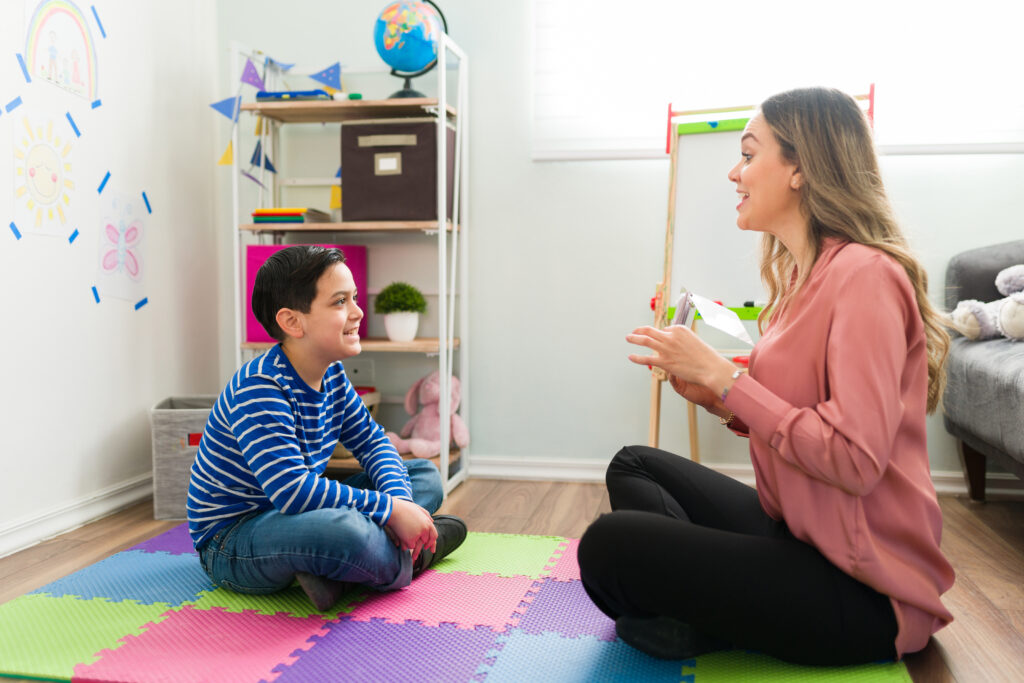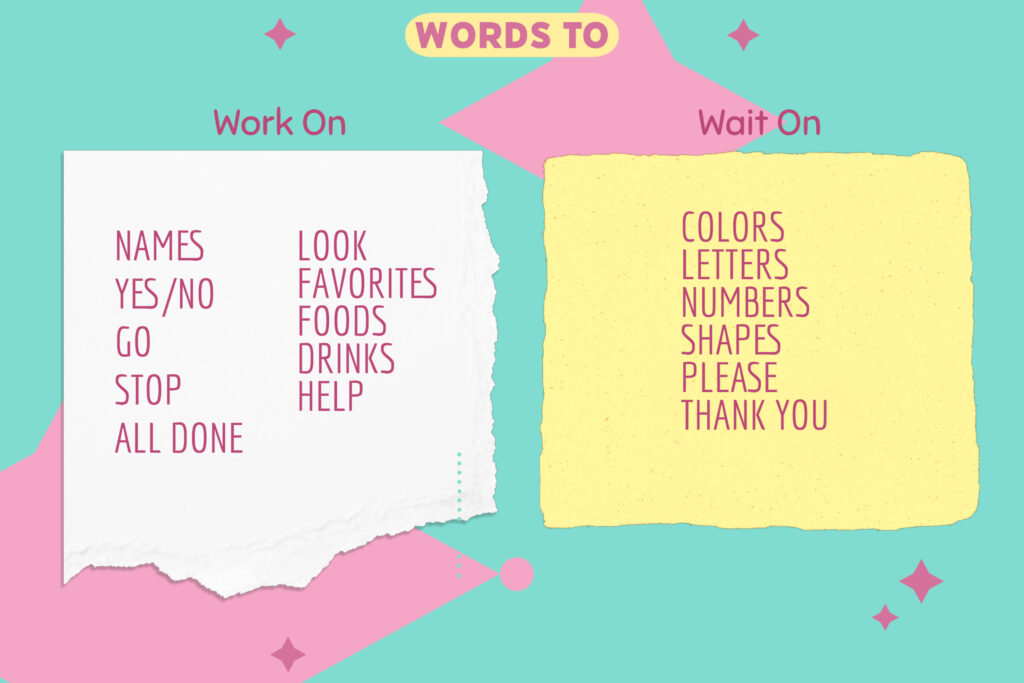Words to Work On and Words to Wait On

If your child is just beginning language therapy, you might have some questions about how their speech therapist is choosing what words to work on. With all the words out there that can help children communicate better, which ones are the most important to focus on first? After reading this you should have a better idea about words to work on and words to wait on when you work with your child at home.
Functional Words Versus Academic Words
First, lets talk about different types of words children can use. To make this easy, we will just divide them into functional words and academic words. Functional words help to get immediate needs met. Academic words help to build knowledge of a specific topic or domain.
Teaching functional words first will help children to express themselves more successfully. Once children learn the words to get their immediate needs met, you will likely see less frustration and behavioral outbursts. Functional words may include names of immediate family members or caregivers, yes/no, names of foods and drinks, favorite objects and actions. They may also include words such as: go, stop, all done, help, and look. These words will help children communicate their wants and needs and make meaningful requests.
Academic words include: colors, numbers, letters, shapes, etc. I also include please and thank you on this list. Although please and thank you are manner related and not specifically academic, they do not serve to meet a child’s immediate need. Academic words are useful, but if your child is just beginning to talk and learn language they are not as helpful in making your child a successful early communicator.
How to Teach Functional Words to Work On
It is easy to feel overwhelmed when your child is beginning therapy. If you are starting the speech and language therapy process with your child, please know you should always feel comfortable asking your therapist any questions you may have.
When teaching functional words, the goal is not just to get your child saying the words. Children have to understand words before they will begin using them to communicate. So, when you think about words to work on, the goal isn’t just speaking or saying the words. I like think about words for objects or actions your child loves and uses on a daily basis. These may be different for each child. Some examples may include: car, shoes, ball, eat, banana, stop, go, push, etc.
Label these words at home. If you see these objects or complete these actions within the community label them there as well. For example, “You want to eat,” “You are eating a banana,” “I see the banana,” etc. Functional words can also be modeled using sign language. As your child becomes more familiar with these functional words, you can start to encourage your child to use a sign or verbal word approximation to request these words.
Speech and Language Kids also has some really helpful information about how to help your children learn to be functional communicators.

Each Child is Different
It is important to remember that every child is different. This means children learn differently too. Some children may gravitate to using academic words, and that is ok. You can then use these words to help build a more functional vocabulary. Just remember, when you are working with your child try to help them learn. Use words that will help them express their wants and needs as much as possible. Once your child can get their needs met, the focus can shift to more academic vocabulary.
It may be helpful to check out our blog on prelinguistic development to see if your child is ready to start moving forward with verbal language. If you have questions about your child’s language development, call us today at (406) 388-4988.
